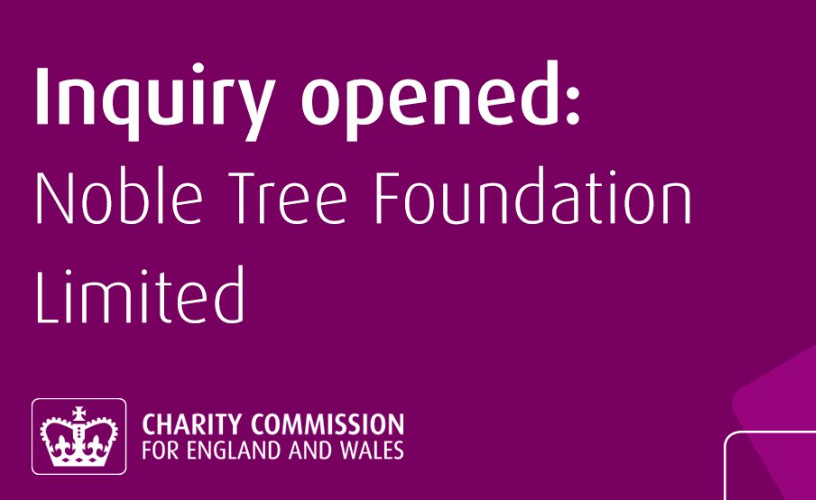A survey of more than 250 charities has highlighted widespread concerns around reduced funding and increased running costs.
More than four in five say they are concerned about rising costs and seven in ten say their biggest concern is a loss of funding.
Just under a third of charities say they have become more concerned about losing funding over the last year.
Of those concerned about a loss of funding, half say challenges focus on losing money from grants, while two in five are concerned about a drop in donations. A quarter are concerned about losing money from public sector contracts.
The findings have emerged in insurance firm Ecclesiastical’s latest Charity Risk Barometer report.
It warns that a drop in income through local authority commissioning of charities is a particular concern due to financial challenges many councils are facing.
Last week local government organisation the County Councils Network warned that councils are facing a £4bn funding cap over the next three years and have already highlighted £2bn worth of savings and cuts to services.
Recruitment and retention concerns
Ecclesiastical’s survey also reveals that three quarters of charities are concerned about staff recruitment and retention. Meanwhile, a quarter have had to made redundancies due to financial pressures.
More than two thirds are concerned about staff burnout amid current pressures of working in the charity sector, with seven in ten charity leaders surveyed saying they are more concerned about staff burnout over the last year.
Just over half are concerned about managing the health and safety of staff, volunteers, and service users but a third say they are not providing any wellbeing support to volunteers.
A third of those offering support are doing this through wellbeing policies, while a quarter are through mental first aiders and the same proportion are offering helpline support. Less than one in six are offering access to a mental health professional.
Last month a separate survey, by Pro Bono Economics and Nottingham Trent University, found that just under a third of charities warn burnout and exhaustion has increased in their organisation over the last year.
Despite the bleak responses from its survey, the insurance firm adds that there are positives to note, such as work done by charities during the pandemic to improve the efficiency of their operations.
Just over a third have renegotiated supplier contracts and a similar proportion have changed the way they operate without reducing their services. A fifth have changed energy suppliers.
“The charity sector has worked relentlessly to adapt and overcome challenges thrown in its way over the last decade,” said Ecclesiastical Insurance customer segment director Faith Kitchen.
“Austerity was followed by the pandemic and now charities are under pressure to meet a spiralling increase in demand as the cost-of-living crisis bites – all while feeling the pinch of a challenging financial landscape.”
Kitchen added: “What this research has shown us is that once again the sector is showing resilience in the face of all these challenges. Many have a realistic view of the difficulties they face and can be agile in the measures they take to mitigate risk. They face real threats, but from a solid position.”
Latest News
-
Christian donors’ giving falls over the last year
-
Regulator’s church probe in York sparks further investigation
-
Paying fundraisers a commission can harm their wellbeing, think tank warns
-
Monday movers - 2 February
-
Regulator finds misconduct at late-filing private Catholic school
-
Tactics of most successful event fundraisers revealed
Charity Times video Q&A: In conversation with Hilda Hayo, CEO of Dementia UK
Charity Times editor, Lauren Weymouth, is joined by Dementia UK CEO, Hilda Hayo to discuss why the charity receives such high workplace satisfaction results, what a positive working culture looks like and the importance of lived experience among staff. The pair talk about challenges facing the charity, the impact felt by the pandemic and how it's striving to overcome obstacles and continue to be a highly impactful organisation for anybody affected by dementia.
Charity Times Awards 2023
Mitigating risk and reducing claims

The cost-of-living crisis is impacting charities in a number of ways, including the risks they take. Endsleigh Insurance’s* senior risk management consultant Scott Crichton joins Charity Times to discuss the ramifications of prioritising certain types of risk over others, the financial implications risk can have if not managed properly, and tips for charities to help manage those risks.
* Coming soon… Howden, the new name for Endsleigh.
* Coming soon… Howden, the new name for Endsleigh.
Better Society

© 2021 Perspective Publishing Privacy & Cookies













Recent Stories